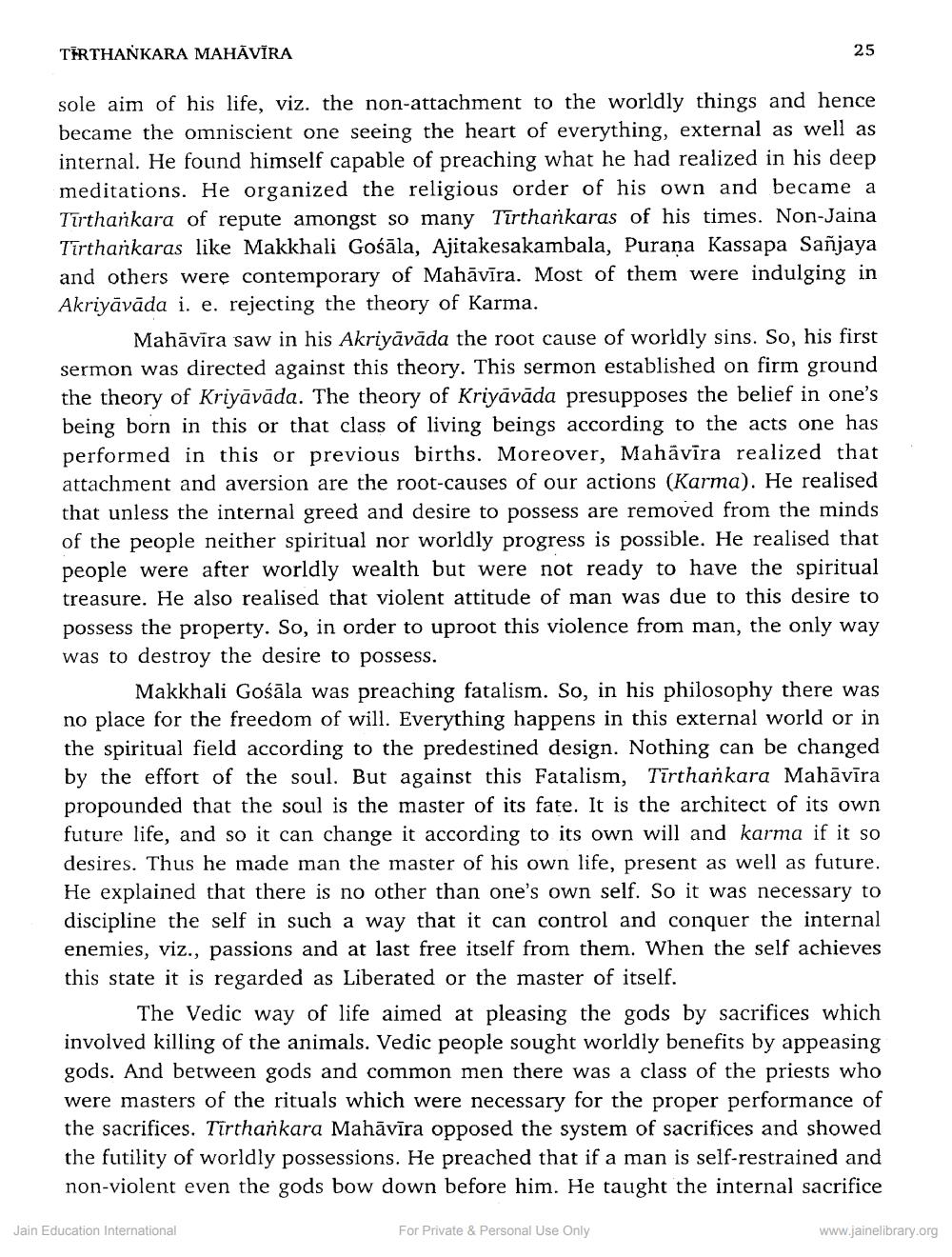________________
TIRTHANKARA MAHĀVĪRA
sole aim of his life, viz. the non-attachment to the worldly things and hence became the omniscient one seeing the heart of everything, external as well as internal. He found himself capable of preaching what he had realized in his deep meditations. He organized the religious order of his own and became a Tirthankara of repute amongst so many Tirthankaras of his times. Non-Jaina Tirthankaras like Makkhali Gośāla, Ajitakesakambala, Purana Kassapa Sañjaya and others were contemporary of Mahavira. Most of them were indulging in Akriyāvāda i. e. rejecting the theory of Karma.
25
Mahavira saw in his Akriyäväda the root cause of worldly sins. So, his first sermon was directed against this theory. This sermon established on firm ground the theory of Kriyäväda. The theory of Kriyāvāda presupposes the belief in one's being born in this or that class of living beings according to the acts one has performed in this or previous births. Moreover, Mahāvīra realized that attachment and aversion are the root-causes of our actions (Karma). He realised that unless the internal greed and desire to possess are removed from the minds. of the people neither spiritual nor worldly progress is possible. He realised that people were after worldly wealth but were not ready to have the spiritual treasure. He also realised that violent attitude of man was due to this desire to possess the property. So, in order to uproot this violence from man, the only way was to destroy the desire to possess.
Makkhali Gośāla was preaching fatalism. So, in his philosophy there was no place for the freedom of will. Everything happens in this external world or in the spiritual field according to the predestined design. Nothing can be changed by the effort of the soul. But against this Fatalism, Tirthankara Mahāvīra propounded that the soul is the master of its fate. It is the architect of its own future life, and so it can change it according to its own will and karma if it so desires. Thus he made man the master of his own life, present as well as future. He explained that there is no other than one's own self. So it was necessary to discipline the self in such a way that it can control and conquer the internal enemies, viz., passions and at last free itself from them. When the self achieves this state it is regarded as Liberated or the master of itself.
The Vedic way of life aimed at pleasing the gods by sacrifices which involved killing of the animals. Vedic people sought worldly benefits by appeasing gods. And between gods and common men there was a class of the priests who were masters of the rituals which were necessary for the proper performance of the sacrifices. Tirthankara Mahāvīra opposed the system of sacrifices and showed the futility of worldly possessions. He preached that if a man is self-restrained and non-violent even the gods bow down before him. He taught the internal sacrifice
Jain Education International
For Private & Personal Use Only
www.jainelibrary.org




